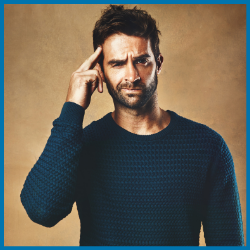Is it all in the mind?

All Reflexologists have heard this said at one time or another. 'There is no scientific proof' is another. But are they right?
It is true to say that the bulk of evidence in favour of reflexology is anecdotal, nevertheless, there is an increasing body of scientific evidence
Every reflexology client is of course an individual and consequently reacts differently to treatment and, for a Professional Reflexologist, it is almost impossible to carry out a 'double blind' experiment by giving a placebo treatment. So for most of the time, we must rely on anecdotal evidence. The writer once made this point about placebo treatment when in conversation with an orthopaedic surgeon, and he said not to worry because he was in much the same position, as he couldn't perform a placebo hip replacement and therefore his evidence was only anecdotal.
There are many theories about reflexology and how it works and the placebo effect is just one. The mind is certainly a very powerful influence in almost everything we do, but the quantity of anecdotal evidence is too strong to ignore and, scientific or not if anecdotal evidence is acceptable within conventional medicine, why not in reflexology?
This brings us back to the original question; is it all in the mind? We are sure you would expect us to say no, but maybe not quite the way you might think. Many who decide to try reflexology have shown a key change of mind in deciding to do something for themselves and for the benefit of their own health.
To see if it is all in the mind we need to look at the type of case where there are no preconceived ideas, no outside influences and no false beliefs.
Take for instance Billy, aged seven, suffering from cerebral palsy. Billy was taken for treatment by his mother in the hope that reflexology could help. We must make the point that no Professional Reflexologist would ever claim to cure, however over the course of his visits the changes were marked. Billy visibly relaxed and his limb position became less scissor-like. He had suffered from severe constipation prior to receiving reflexology, but his mother reported a distinct improvement with this problem. But what was most remarkable with Billy was that he was able to point to the area on his body specific to the reflex area on the feet that was being treated.
We could also look at the case of Ian, 28 years old and suffering from insomnia. He had a responsible and stressful career and was, shall we say, pushed into agreeing to treatment by his girlfriend. He arrived for his appointment saying that he didn't believe in it and wasn't sure why he had come but that he wanted to get away as soon as possible because he had promised to take his girlfriend out that evening. Following the session, Ian arrived home around 7:30, rang his girlfriend to say that he would pick her up at 8:00 sat on the sofa, went to sleep and woke at 7:30 the following morning. After only two treatments he reported an increase in energy and no further problems with his sleep patterns.
Is it scientific evidence? No
Is it client anecdotal evidence? Yes
Are these actual case studies? Yes
There are hundreds of cases like these; just ask a reflexologist
There are just too many coincidences to ignore.
wrw
